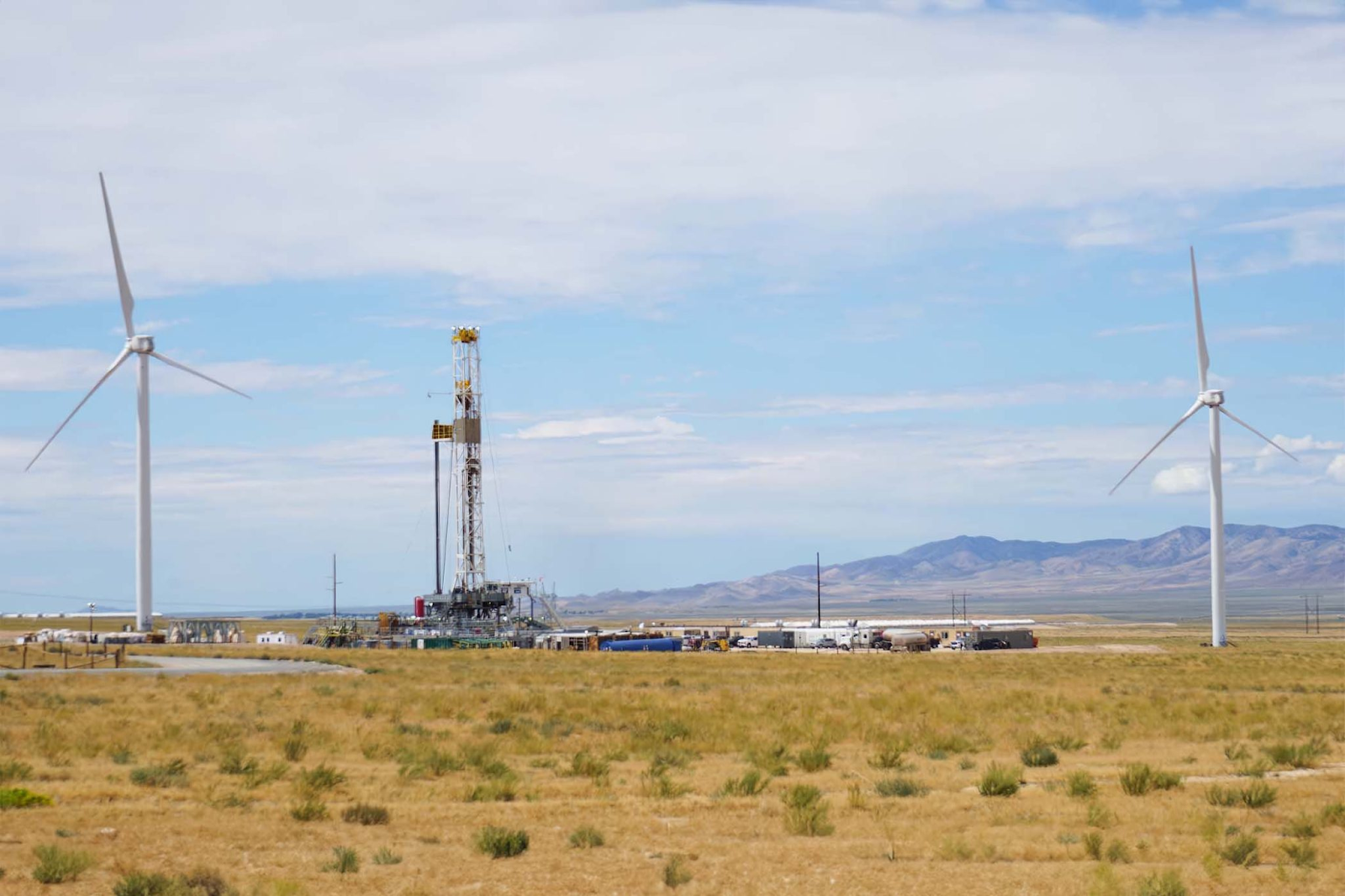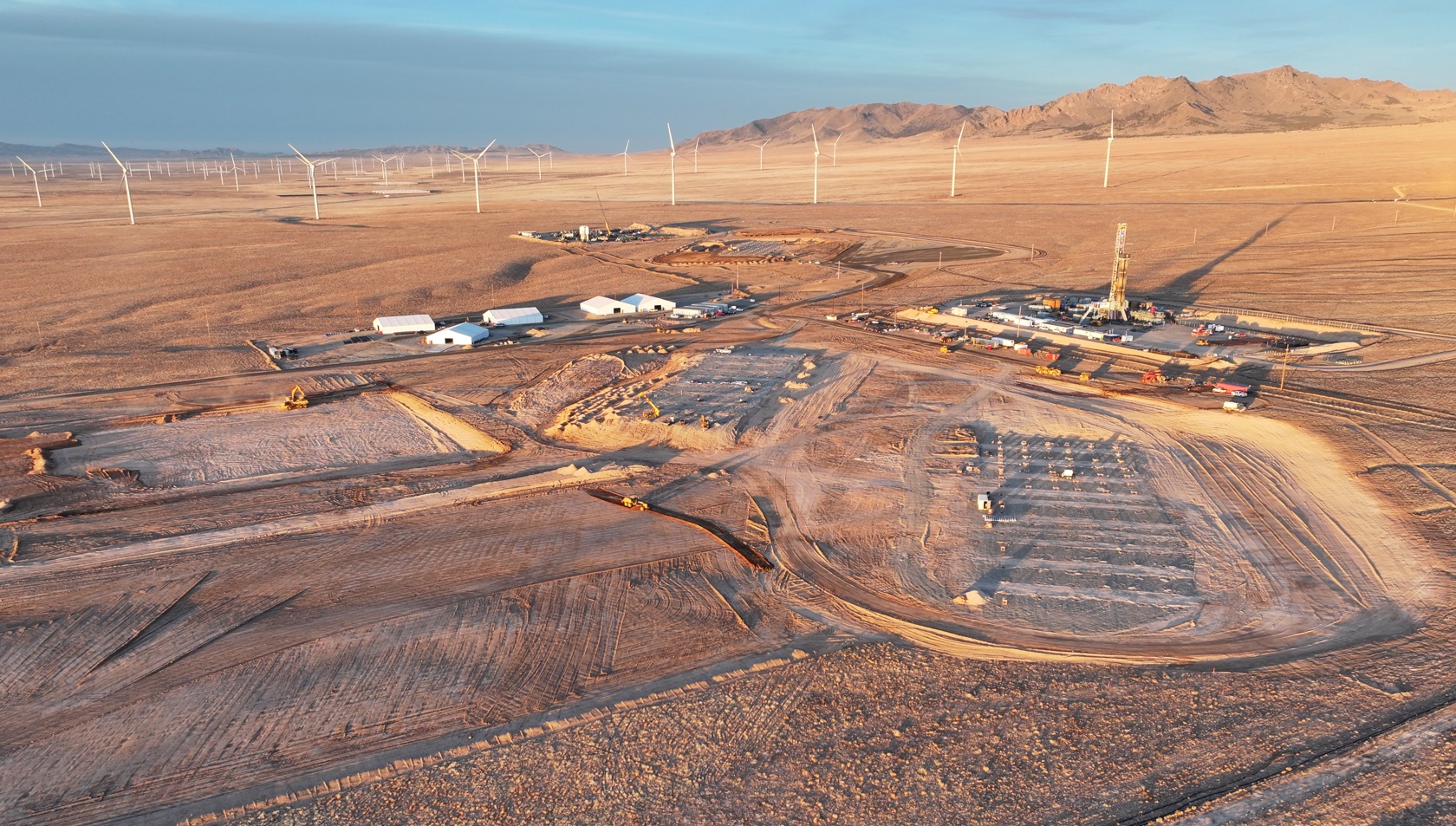Christmas came early for Fervo Energy with the company’s Dec. 19 announcement of $255 million in new funding to accelerate the deployment of its enhanced geothermal systems projects. The Houston, Texas-headquartered company’s first greenfield development, Cape Station in Beaver County, Utah, is due to be operational in 2026.
The financing includes $135 million in corporate equity, led by Capricorn’s Technology Impact Fund II, with participation from major investors like Breakthrough Energy Ventures, CalSTRS, and CPP Investments. Fervo also secured a $120 million letter of credit and term loan facility from Swiss-headquartered Mercuria, one of the world’s largest independent energy and commodity groups.
“Investors recognize that Fervo’s ability to get to scale quickly is vital in an evolving market that is seeing unprecedented energy demand from AI and other sources,” Tim Latimer, Fervo CEO and co-founder, said in a press release.
Video Courtesy U.S. Department of Energy
The funding from Mercuria positions Fervo to meet surging clean energy demands.
“In surveying power markets across the U.S. today, the need for next-generation geothermal is undeniable,” Brian Falik, group chief investment officer of Mercuria, said in a statement.
“We believe in Fervo not just because their EGS approach is cost-effective, commercially viable, and already being deployed at scale.”
According to the United States Department of Energy (DOE), electricity generated from geothermal energy — heat energy from the earth — produces around one-sixth of the carbon dioxide emitted by a natural gas plant. It also makes very low quantities — if any — of nitrous oxide or sulfur dioxide.

Photo Courtesy Fervo Energy
Fervo’s website says the company uses “precision directional drilling technology.” The firm drills horizontally into geothermal reservoirs, opening access to multiple wells from one location. The company claims this process ends up “dramatically lowering [its] surface footprint and reducing drilling risks.”
In October last year, the U.S. Department of the Interior’s Bureau of Land Management approved the development to deploy up to 2 gigawatts (GW) of power.
Fervo says the Cape Station will create around 6,600 jobs during construction and 160 full-time positions throughout its operations in the Beehive State, generating more than $437 million in wages.
“The demand for 24/7 carbon-free energy is at an all-time high, and Fervo is one of the only companies building large projects that will come online before the end of the decade,” Latimer said in a press release.

Photo Courtesy Kace Lott
Utah is becoming a hub for carbon-free power generation, specifically geothermal energy. According to Fervo, researchers estimate that the state’s southwest portion contains more than 10 GW of geothermal reserves. Cape Station will also benefit from the DOE’s Frontier Observatory for Research in Geothermal Energy (FORGE), which has completed studies advancing regional geothermal development.
The ground-breaking ceremony marking the beginning of the drilling campaign exploration at Cape Station took place in September 2023. Cape Station is positioned to be an economic engine for its county. Fervo says the project will channel $1.1 billion to supply chains and local businesses.
“Fervo’s Cape Station will be a tremendous asset to the Milford Valley, breathing life into the local economy and providing jobs to our hard-working residents,” Nolan Davis, mayor of Milford, Utah, said in a press release.
“Utah is no stranger to energy leadership. For decades, oil and gas workers in the Uinta Basin have produced energy vital to the growth of not just our state but our nation,” Spencer Cox, Utah’s governor, said in a 2023 statement. “Geothermal innovations like those pioneered by Fervo will play a critical role in extending Utah’s energy leadership for generations to come.”





